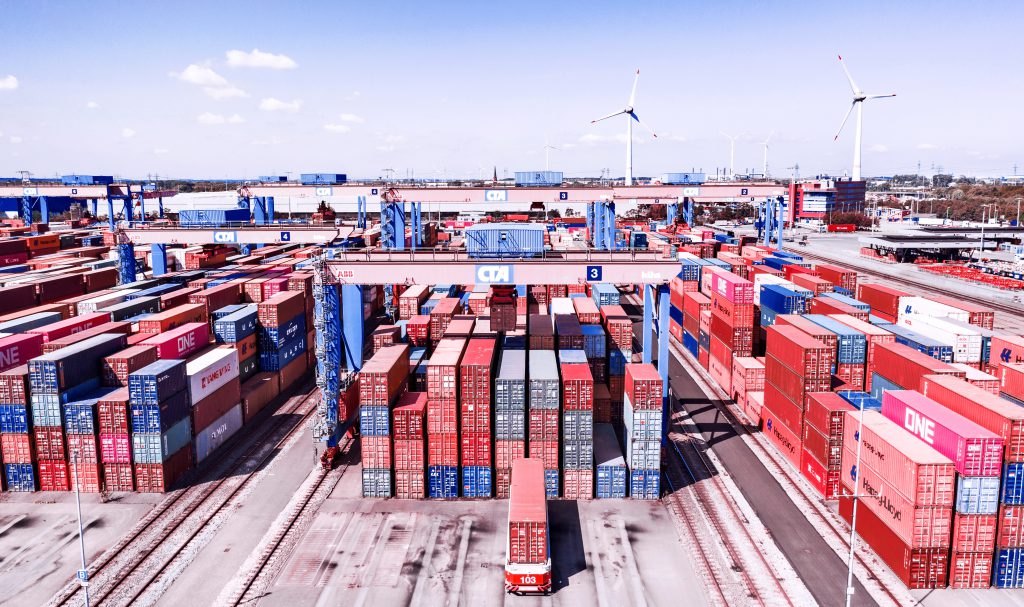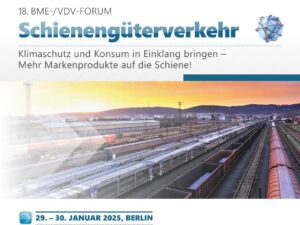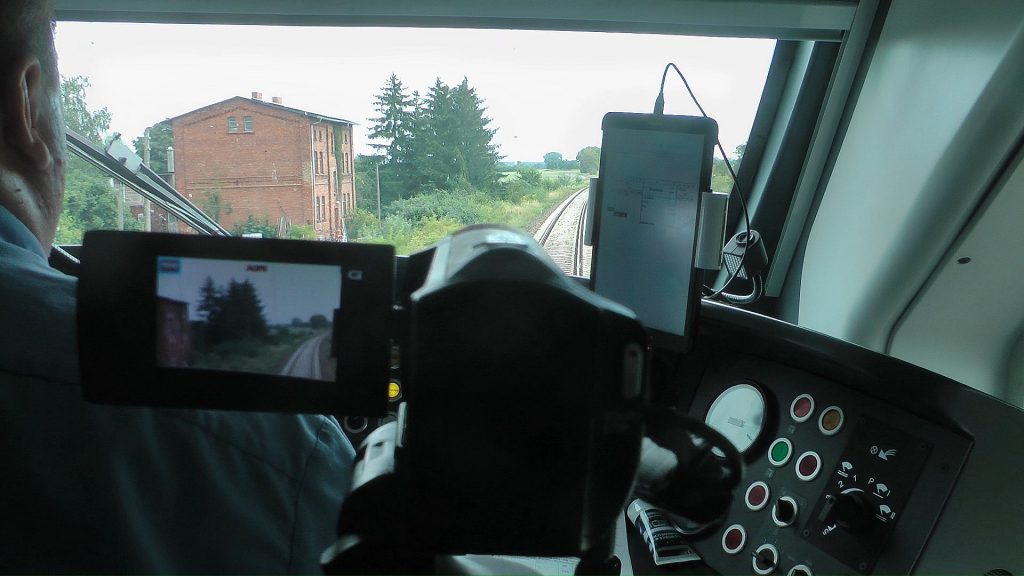HHLA’s EBIT for 2021 was EUR 228 million and improved by 84.7 percent compared to the previous year. As a reason for these successful figures, CFO Dr. Roland Lappin, among other things, mentioned the “temporarily high storage fee income” that arose due to the ship delays. CEO Angela Titzrath explained that the systems are very much challenged by the massive ship delays of currently three to four weeks. For this reason, the storage capacities have generally been increased by a quarter, at the Hamburg-Altenwerder terminal by around 8,000 TEU. She describes the current situation as a “stress test for global logistics”, so the challenges require the commitment of everyone involved in the supply chain.
In the port logistics subgroup, HHLA achieved sales of EUR 1.43 billion (previous year: EUR 1.26 billion) and an operating result (EBIT) of EUR 212 million. In the previous year it was 110 million, whereby the result was characterized by additions to provisions. The strong increase in container transport volumes at the rail freight subsidiary Metrans also contributed to the positive result.
The listed company HHLA is 69 percent owned by the city of Hamburg. The Russian attack also affects the Hanseatic city, said the head of the Hamburg liberal party FDP Michael Kruse in WirtschaftsWoche. According to HHLA, it has invested more than 170 million dollars in the Odessa container terminal (CTO). The port has continued to grow in importance since Russia annexed Crimea in 2014. Odessa is 300 kilometers northwest of Crimea and has long been relatively accessible to ships from Europe. The HHLA terminal in Odessa handles around 300,000 standard containers (TEU) annually. Bulk and liquid cargo is also loaded in Odessa.
Odessa employees were partially evacuated to Hamburg

Grain exports are particularly important for the Ukraine, said Philip Sweens, Managing Director of HHLA’s international operations. “Odessa is Ukraine’s largest port and Ukraine’s main supply point by sea, especially since Crimea and the Sea of Azov have become difficult to navigate.” The approximately 480 HHLA employees in the now closed Odessa terminal had to be sent home until further notice. But the wages would continue to be paid. In addition, an HHLA crisis team brought 120 members of the company to Hamburg and even accommodated some of them with helpful HHLA colleagues, Titzrath explained. In total, HHLA takes care of 250 refugees. Now ways are being sought to secure their stay in the long term – “it can be assumed that many refugees will not be able to return so quickly.”
HHLA donated one million euros to a Ukraine aid fund. The aid fund supplements an employee donation that was initiated by the Management Board at the request of the employees. So far, more than 60,000 euros have been collected to support specific aid projects for local employees. In addition, as of March 1, 2022, measures to implement the sanctions imposed on Russia by the European Union (EU) also took effect at HHLA’s container terminals in Hamburg. Since March 1, 2022, no more containers coming from or going to Russia have been handled here. This also applies to cargo transported by train, barge or truck.
Transport volume + 10 percent, rail transport + 12.8 percent
In 2020, container handling at the Hamburg container terminals with the Russia trade accounted for a total of 229,000 TEU (around 3 percent of HHLA’s total container handling). A significant decrease occurred in 2014 as a result of the sanctions imposed on Russia at the time in response to the annexation of Crimea. Rail freight transport via the new Silk Road is also affected, and the search for alternative routes has already begun. The closure of Russian airspace increases flight times, which results in rising prices for many goods, but above all for energy.
CEO Titzrath was all the more pleased about the positive business results for 2021: “We are also operationally stable enough to meet the requirements of our customers both at our terminals in Hamburg, Tallinn and Trieste as well as by rail. Logistics always means managing volatility. We face this challenge. Because we are aware of our responsibility as a service provider for the industrial nation of Germany.”
While container throughput increased by 2.5 percent year-on-year to 6.9 million standard containers (TEU), the transport volume increased by 10 percent to 1.69 million TEU. Compared to the previous year, rail transport increased by 12.8 percent to 1.37 million TEU. In a persistently difficult market environment, road transport was at the previous year’s level with a transport volume of 312,000 TEU.
Hermann Schmidtendorf, Editor-in-Chief / hh









